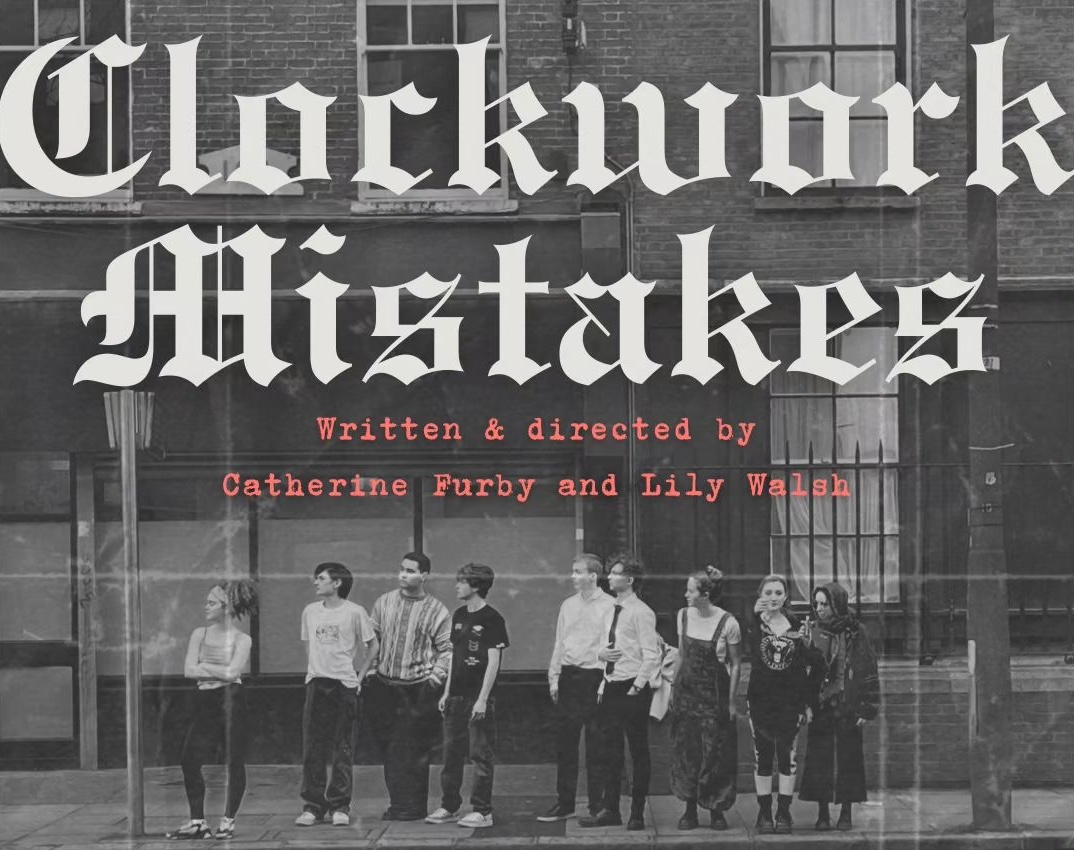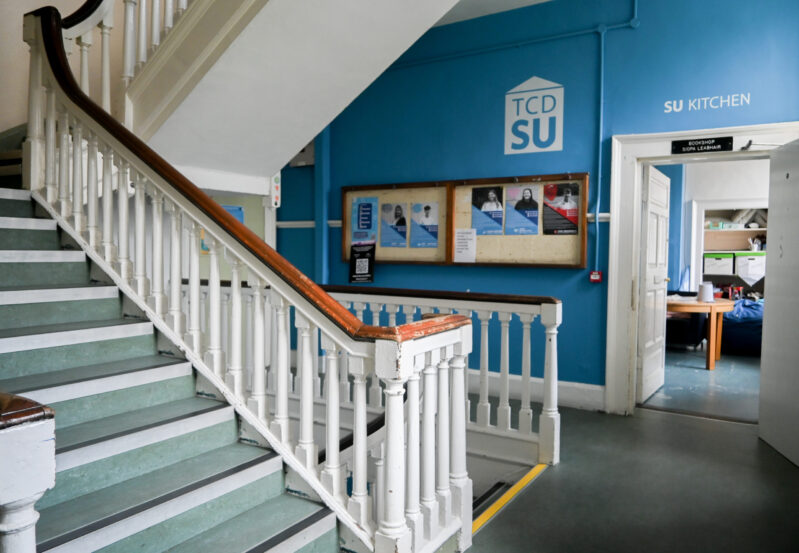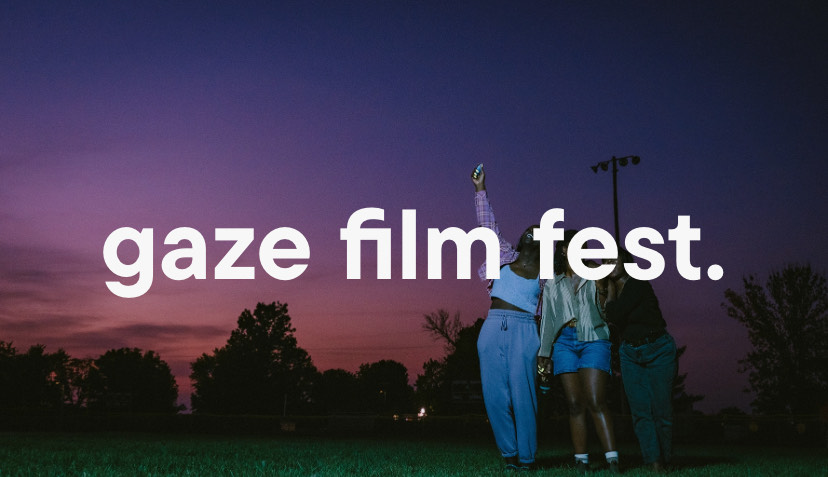
Clockwork Mistakes takes on the exciting role of headliner this Hilary term during DU Players Fringe Festival. The Beckett-inspired rehearsed reading exploring loss, grief and the trappings of time is co-written by English Literature students Catherine Furby and Lily Walsh. Clockwork Mistakes follows the lives of the people living in four rooms of the same apartment complex. Each person has lost something: something initially obscure and unclear. As the play carries on, and the people become more and more intertwined, all of their losses begin to trace back to a single incident.
The University Times sat down with Furby and Walsh to discuss their collaborative process and the evolution of their piece from an idea to a finished product. I asked Furby and Walsh to talk about the challenges that come with the experimental and minimalistic nature of a workshop format.
Furby described the revisions that the original concept of Clockwork Mistakes underwent to become a rehearsed reading, saying “We actually had to rewrite a lot of our scripts because it was very movement-based … The whole thing is about the connections between the characters and subtly showing that they’re all connected to this event and they all live in the same place. So our idea was to have a rotating set so we could show each room of the individual apartment complex”.
This Hamilton-style set plan was scrapped for a more subtle approach, Furby explained. “Instead, we changed it all to be dialogue-based. We connected the characters with subtleties in the lines and we have crossover scenes”.
I asked if the two aimed to lean into, or to stray away from, the sparse writing style contemporary pieces often employ when creating the flow of dialogue for their show. Furby and Walsh went on to describe the complications a co-written piece inspires when it comes to reconciling their individual visions for the play. They both admitted they have totally different styles of writing, but Walsh assured that “they balance each other out”.
Furby described her style as being geared towards stream-of-consciousness and internal monologue, whilst Walsh’s writing niche lies in organic, conversational dialogue. Despite their stylistic differences, the intention of a philosophical and aesthetic use of language to be maintained throughout the play was mutually shared by the two writers.
When asked whether either writer had a favourite moment in the script that was vetoed from the play’s final structure, they both agreed that there were some hard decisions made. Walsh explained, laughing, “There were some, like, not battles, but some discussions that we had to have about certain bits. But I think we’ve kept everything that we found really important and we’ve just worked to make it flow better… We didn’t let go of anything we felt was really crucial. We just adapted it to suit what it’s become”.
Furby went on to say, “My favourite metaphor had to go though. So the play has got religious undertones because the main character is an older, religious woman. We had the phrase “Judgement Day” as a repeated image. And I loved it, it brings in the religion, it sums up the ending of the whole plot. And Lilly was like, I don’t like that. And every person that read over it was like ‘What is this?’.”
With regards to the tone of the piece, Walsh admits that it is a somewhat sombre play, “I feel like it’s kind of a low play. But we’ve spiced it up with humour, that alleviates the sorrow…we take the time to find the humour in the grief”. Furby agreed and doubled down on this, saying: “My favourite genre ever is the mixture of tragedy and humour where it seems light on top but is very layered”.
The writers named Samuel Beckett as an inspiration for the symbolic depth found in the combative dialogue of Clockwork Mistakes, “(It’s) like a symbolic back and forth. They’re fighting about something seemingly arbitrary, but it’s symbolic to something deeper to the play’s meaning. And we did that in a Beckett-esque way”
Furby describes her favourite scene and demonstrates the show’s melding of the tragi-comedy genre with Beckett’s layered dialogue style. “It’s three boys talking, and you can tell that it’s got sad undertones but they’re kind of fighting back and forth in a way that’s funny”.
Finally, when asked what the two writers wished the audience to take away from the play after seeing it, Walsh wanted people to walk away interested and Furby wished for an audience to admire their execution and handling of the play’s core ideas: “I think it’s difficult because we’re so close to it right now…we are so focused on our writing and the style of how we wrote and that’s all I can see when I look at it. I feel like people with a different perspective will take meaning out of it”.
The workshop play will take place during the second week of term, from Monday to Friday, beginning at 1 pm each day in the Players Theatre.






